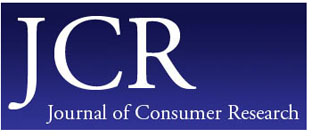This blog is first in a series, from CMB's Meg Gerbasi and Scott Motyka, exploring the latest in market research methods.
 Imagine that you are given a glass of merlot at a wine tasting. You swirl the glass and breathe in the aroma, immediately picking up oak and then hints of cherry and dark fruits. Now tasting it, you detect cherry, blueberries, and blackberries mixed in with a blackpepper tone. Later the sommelier tells you that the wine was produced in India. Would you be surprised if we told you that you’d be more likely to buy a bottle of this Indian wine than if it was from Italy? Today we discuss a forthcoming paper in the Journal of Consumer Research by researchers Keith Wilcox, Anne Roggeveen, and Dhruv Grewal of Babson College.The Big Idea
Imagine that you are given a glass of merlot at a wine tasting. You swirl the glass and breathe in the aroma, immediately picking up oak and then hints of cherry and dark fruits. Now tasting it, you detect cherry, blueberries, and blackberries mixed in with a blackpepper tone. Later the sommelier tells you that the wine was produced in India. Would you be surprised if we told you that you’d be more likely to buy a bottle of this Indian wine than if it was from Italy? Today we discuss a forthcoming paper in the Journal of Consumer Research by researchers Keith Wilcox, Anne Roggeveen, and Dhruv Grewal of Babson College.The Big Idea
Have you figured out why learning the Merlot was from India (instead of Italy) after tasting it would make you like it more? Wilcox and his team say they have the answer, but it’s a little complicated. When given product information prior to tasting, favorable information leads to more enjoyment of the product, but when product information is provided after sampling, favorable product information will lead to less enjoyment of the product.
This is counterintuitive, so let’s unpack it carefully. When given information about a product before you sample it, the information colors your experience of the product. When you taste something you expect to be enjoyable, for example, an expensive Italian wine, you actually enjoy the product more than if it were something you would expect to be less enjoyable, say, an inexpensive Indian wine. These findings aren’t new, several studies have shown similar results – Coke tastes better from a cup with a Coca-Cola logo, people enjoy movies more if they know they have good reviews, and drinks taste better when they’re purchased at full price.
 What got us excited here at CMB were the results of what happens if you give a consumer product information after they’ve sampled your product – the results reverse! That rich, fruity red with the silky smooth finish somehow doesn’t seem so great when you find out it’s $200 a bottle, does it? But it tastes even better when you find out that it is a Trader Joe’s “Two Buck Chuck.” Wilcox explains that when we sample an experiential product that excites our senses causing an emotional reaction (think food, movies, music) it forms an immediate impression. The product information provided after sampling is used as a measuring stick of our initial impressions, causing favorable information to actually diminish our enjoyment of the product (“I expected a $200 bottle of wine to taste better”).
What got us excited here at CMB were the results of what happens if you give a consumer product information after they’ve sampled your product – the results reverse! That rich, fruity red with the silky smooth finish somehow doesn’t seem so great when you find out it’s $200 a bottle, does it? But it tastes even better when you find out that it is a Trader Joe’s “Two Buck Chuck.” Wilcox explains that when we sample an experiential product that excites our senses causing an emotional reaction (think food, movies, music) it forms an immediate impression. The product information provided after sampling is used as a measuring stick of our initial impressions, causing favorable information to actually diminish our enjoyment of the product (“I expected a $200 bottle of wine to taste better”).
A 21st Century Marketing Strategy?
What does this mean to market researchers out in the real world? As opportunities to demo video games, listen to music samples, and watch movie previews before purchase increases through internet, mobile, and OTT TV (e.g., Hulu) channels, this research has exciting potential to inform our digital marketing methodology. Through careful examination of both the impact and timing of the product information we communicate, we can maximize the digital experiences of our customers. Should you provide your brand image, product name, or price at the beginning or end of a video game ad, before or after a person listens to a 30 second music clip? It depends. If you’re marketing a well-known brand or band, such as Call of Duty or the Beatles, you’d be better to let your customer know right off instead of leaving them hanging. If you’re trying to break into a new market, establish your brand, or present a relatively low-cost product, let the ad convert your potential customers first. In summary, this study reinforces the critical importance of companies to “hear” the voice of their customers through market research.
Posted by CMB researchers Meg Gerbasi and Scott Motyka. Meg holds a Ph.D. in social psychology from Princeton and specializes in the study of self-interest, psychometric validation, intergroup conflict, and decision making. She has a passion for the color pink and the musical stylings of Lady Gaga. Scott is doctoral candidate in psychology at Brandeis University, his affinity for Lady Gaga is unknown.

